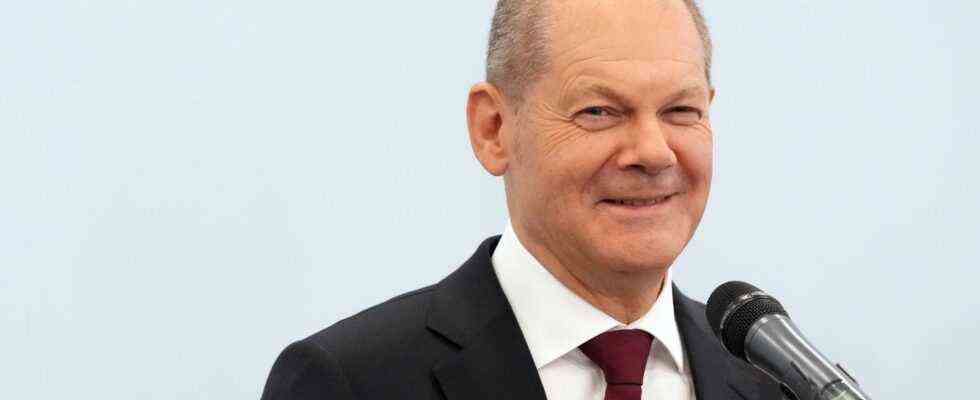Coalition negotiations
Planned change of government: Scholz could be chancellor before Christmas
Olaf Scholz could become Germany’s Chancellor this year.
© Kay Nietfeld / DPA
If the SPD, the Greens and the FDP have their way, Angela Merkel will probably no longer give the New Year’s speech, as many thought. The change of government could be due in December.
The traffic light parties SPD, Greens and FDP want to take over the government in the second week of December: The new Federal Chancellor Olaf Scholz (SPD) should be elected in the week of December 6, said FDP General Secretary Volker Wissing on Thursday in Berlin. The finished coalition agreement should be available by the end of November.
Wissing, his SPD colleague Lars Klingbeil and the Greens federal manager Michael Kellner presented the timetable for the formation of a government on Thursday before the start of the official coalition negotiations. Next Wednesday, the politicians from all three parties should begin their work on a joint government program in 22 working groups.
The working groups should then – with the exception of the weekends – meet for discussions almost every day in order to develop position papers on the individual areas by November 10th. The final editing and clarification of the unresolved questions should then be taken over by the main negotiating group, which should present a coalition agreement by the end of November.
The result then has to be confirmed within the party – at a special party congress for the FDP, and in the form of a digital membership survey for the Greens. The schedule is tighter than previously known: So far, the traffic light parties had promised the formation of a government by Christmas.
Points of contention are still up for debate
Wissing spoke of an “ambitious schedule”. The parties want “Germany to have a stable government as soon as possible”. “It is good for discussions when contentious issues are dealt with quickly,” said Wissing. “If you talk about things too long, the problems don’t get any smaller.”
In a twelve-page exploratory paper, the heads of the three parties had formulated common goals that laid the foundations for the coalition negotiations. They have already resolved some points of contention, but important points remain open – such as the financing of the planned projects. The politicians of the parties will negotiate the details in the coming weeks.
Thematically, the coalition negotiations are divided into seven large blocks: modern state and digitization; Climate protection; World of work; Family and children; Freedom and security; Appearance and defense; Public finances. Representatives of the three parties are to work out a government program in a total of 22 working groups.

